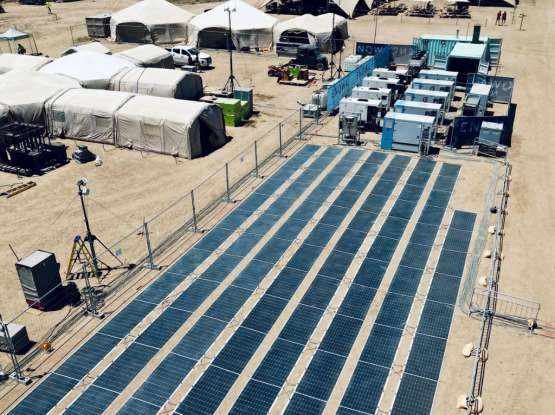As it’s Energy Day at COP27 we thought we’d share our current musings on how we are continuing to drive sustainability and innovation in the temporary power space. For us, it is all about data capture and then analysing the information gleaned to drive and inspire change.
Throughout 2022 we have devised and implemented advanced energy management strategy as several major events, including Extreme E, BST Hyde Park, Platinum Jubilee, Radio 1’s Big Weekend and Creamfields.
Harnessing data from previous events allows us to make informed decisions about power solutions for future events which is crucial for reducing fuel usage and carbon emissions. Data is without doubt the single most important tool at our disposal, it is vital to the overall energy management solution. Power monitoring alone just isn’t good enough anymore, it should be a component of a much broader strategy. This includes analysis of the data to ensure that energy usage is optimised at every stage, then taking the data gathered at each event to improve the system and make energy and carbon emission savings year on year. We’re also using the information gleaned to update and introduce new technologies.
The sustainable solutions that we’re able to deliver are constantly evolving as technology advances and our own knowledge and understanding expands. The way we are now designing and installing our temporary power systems should be the new normal. Gone are the days of dropping generators everywhere for convenience, we must now work hard to design this out and make more centralised power networks that encompass larger areas.
Whilst implementing battery energy storage systems is becoming more commonplace at projects that benefit from the technology, we’re now exploring the next step. This includes hydrogen power, solar and the incorporation of second-life batteries to optimise energy usage for event utilities reducing fuel and carbon emissions. In early December we are working with several of partners, suppliers and engineers to conduct a series of scientific tests with batteries and hydrogen fuel cells. Carried out in our Draycot premises we’ll be gathering data in a controlled environment pathing the way for a cleaner, greener power solutions.
Our experience in this area is allowing us to take massive strides forward and we are only scratching the surface of what these new and existing technologies can do for our industry and we already seeing vast improvements in fuel consumption and efficiencies. The more we work with them, the more we will develop and improve their usage.





